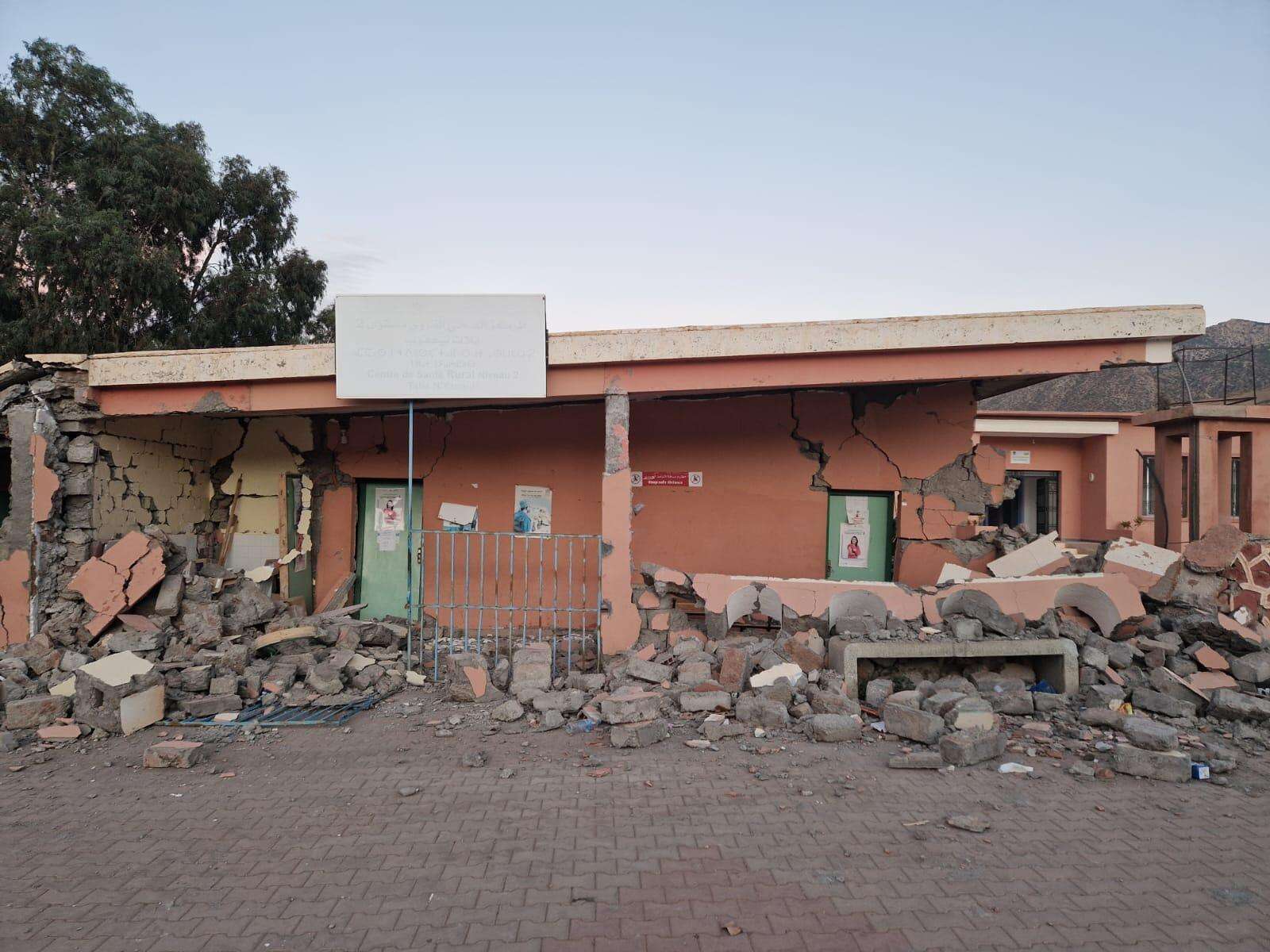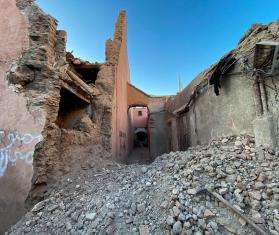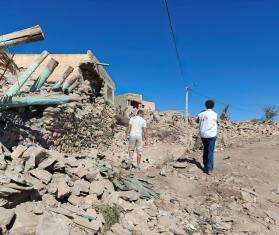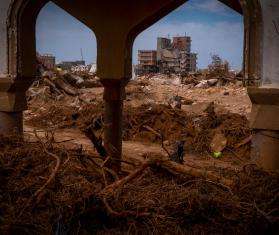On September 8, a 6.8-magnitude earthquake struck Morocco, killing and injuring thousands of people. Doctors Without Borders/Médecins Sans Frontières (MSF) teams arrived the following day to assess humanitarian and medical needs in the most affected areas, including in remote villages in the Atlas region, and have donated medicines and medical supplies to assist authorities in their ongoing response.
I arrived in Morocco on September 11, two days after the earthquake struck the High Atlas region. It was the strongest earthquake that Morocco has experienced in decades, killing close to 3,000 people and injuring around 6,000.
Along with four other MSF teams, we visited dozens of villages. More than 50,000 houses were destroyed, electricity was cut off in various villages, and some villages were completely razed to the ground, making access more challenging. In one village, in the region of Taroudant, only one person survived. It used to be home to 70 people.
The Moroccan authorities swiftly launched a massive intervention with international support to search for bodies under the rubble and treat injured people. They also sent helicopters to evacuate the people in remote areas and in the mountains. While the authorities were responding to people’s urgent and immediate medical needs, mental health support was not yet offered.
Psychological first aid for earthquake survivors
From MSF’s long history of earthquake response, we know that mental health is sometimes not prioritized, yet it is a key element in helping people to adapt, recover, and rebuild their lives.
As a medical professional who speaks Arabic and Berber, I was able to talk to people, listen to their stories, and help them express their emotions. Generally, holding psychological first aid sessions in Berber is a challenge because Morocco is short on psychologists who speak the language. Given my background, however, I was able to hold group sessions without a translator.
What is psychological first aid?
Psychological first aid is provided to people experiencing acute distress after a traumatic event, helping them cope with shock, panic attacks, and other issues related to mental health. The aim is to stabilize, secure a safe space, and ensure access to food, shelter, water, and medications. MSF has provided psychological first aid in Ukraine following missile attacks and to staff responding to the Syria-Turkey earthquakes.
I saw the immense shock people felt, no matter how old they were. What came out most often was fear and anxiety. Several people couldn’t easily talk at first. A woman in a village I visited close to Tigouga lost all three of her children. The youngest was only one month old. She would not speak during the day and at night she would constantly cry and look for her children in the village.
In these mountainous areas, people lost everything within seconds: they lost their past, their present, and their future. They are Berbers who lived here for centuries, and they are not willing to leave their lands, which adds a layer of anxiety and uncertainty for the future. How will I rebuild my life? Will it ever go back to what it was before? Winter is coming and we are living in tents. This is not sustainable.
These were recurring questions I would hear during the sessions, and they are all part of the healing path.
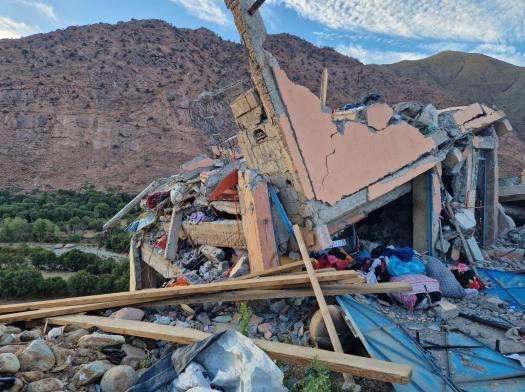
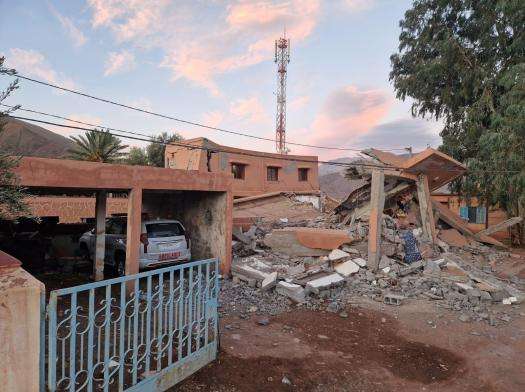
The earthquake severely damaged buildings in Talat Nyakoub, a small city about 60 miles south of Marrakesh. Morocco 2023 © Freddy Liesner/MSF
The importance of opening up
On top of the Moroccan authorities’ massive mobilization, hundreds of young aid workers, mostly from neighboring provinces, came in solidarity and helped in relief efforts. They were not spared from the trauma. The group of young volunteers I worked with, who were between 17 and 24 years old, were shocked. The sessions allowed them to digest and understand what is happening to their minds. As the sessions went on, they opened up and shared the suffering that they had hidden or dared not talk about, as they wanted to appear strong. This space was much needed for these young volunteers to better cope with their emotions.
The earthquake has also revived many hidden mental health disorders that people tend to bury for years, worsening their symptoms.
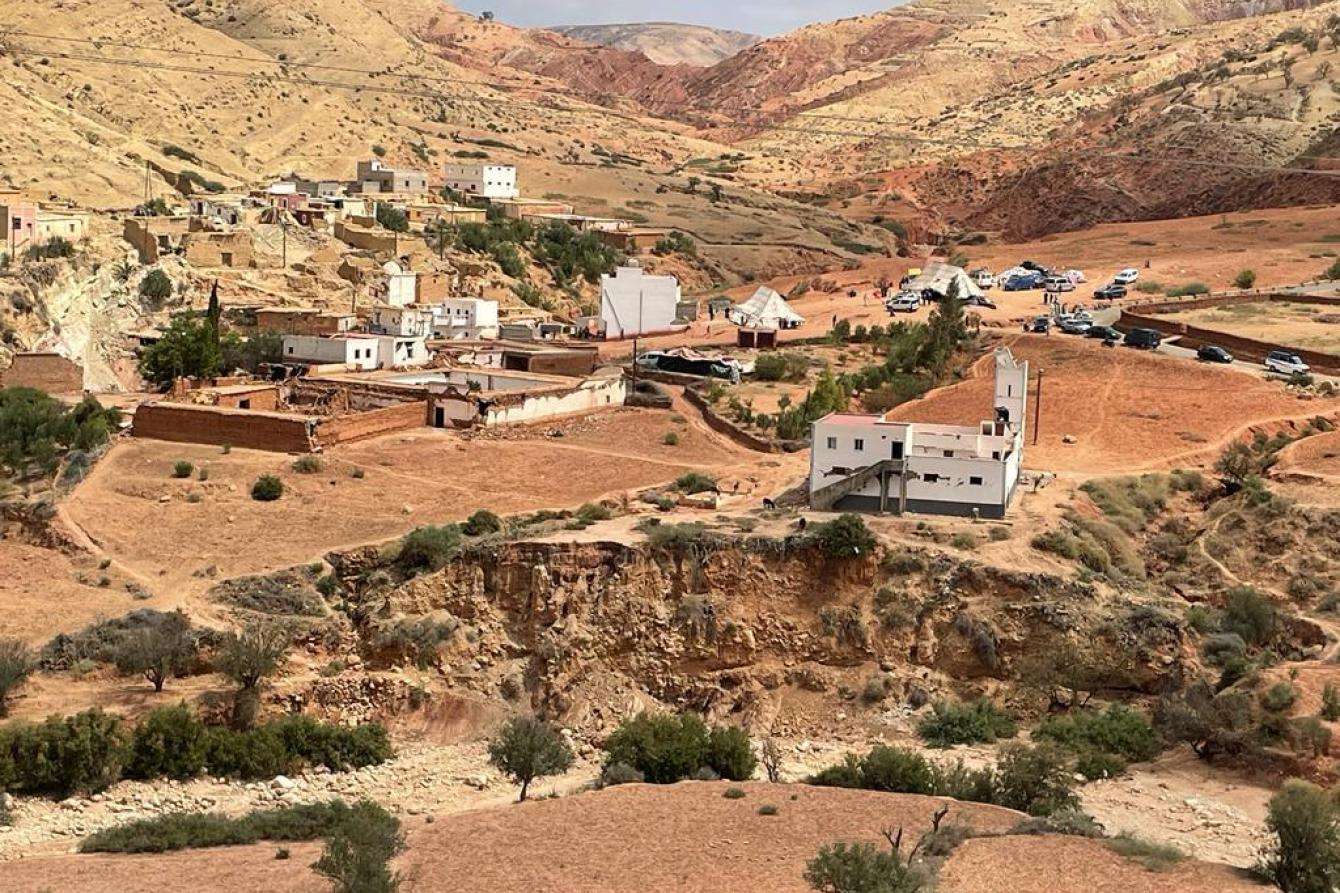
How MSF is responding to mental health needs in Morocco
MSF will work in the upcoming weeks with local authorities and local organizations to provide free mental health care and assist people’s recovery. Thousands of people need to be supported as soon as possible, while the trauma is still fresh in order to prevent post-traumatic stress disorder.
We are working with Moroccan psychologists, health promoters, and social workers, training them to identify people’s needs and give psychological first aid through individual or group sessions. We will also train them to identify severe cases that require additional support and need to be referred to specialized or psychiatric care.
A traumatic experience such as surviving an earthquake requires immediate support with increasing access to mental health assistance. This critical health care is sometimes neglected due to the priority given to visible wounds.
About Fouzia Bara
Fouzia Bara is a French-Moroccan nurse with previous experience in psychological first aid. She has just returned from Morocco after two weeks as part of the MSF emergency response team. She provided first psychological aid to the people in the most impacted villages. During her work in Morocco, Fouzia met with more than 150 people, in group sessions or on an individual basis, mostly with women, children, and young volunteers.
